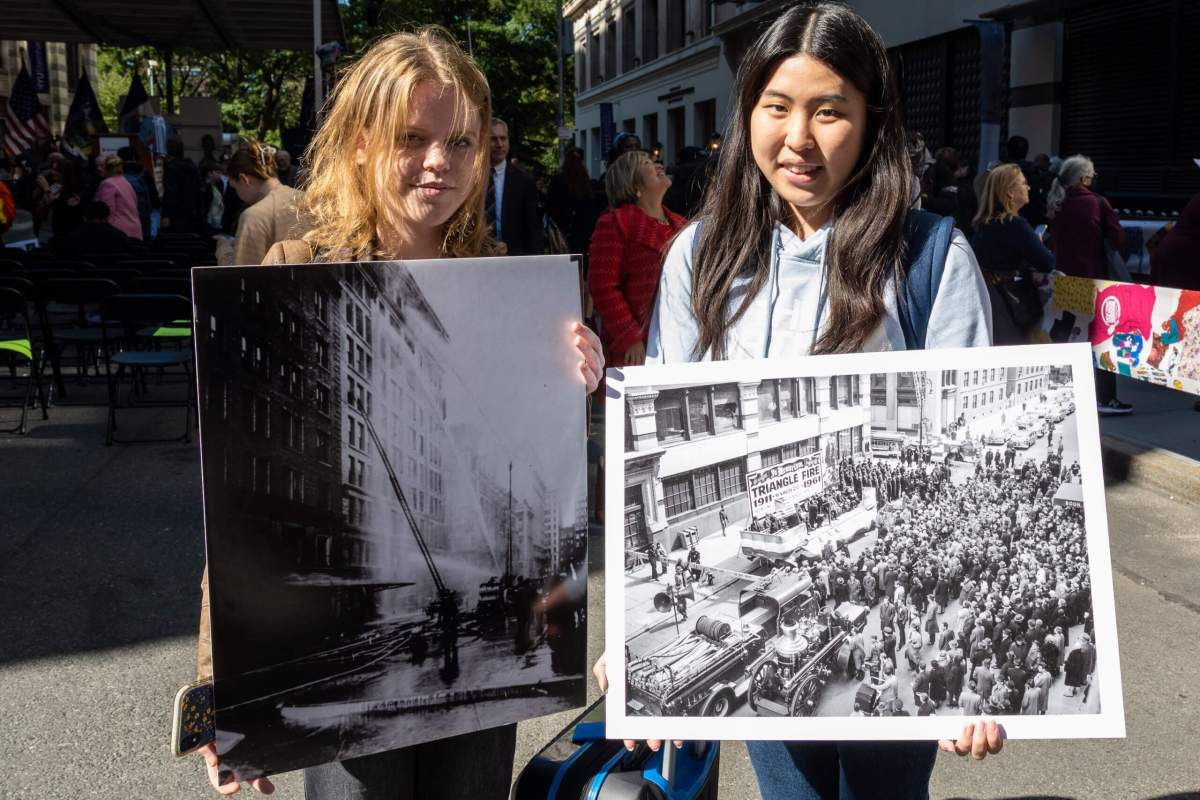In 1911, recent Jewish immigrants stood side by side with their brothers and sisters in the labor movement as they mourned the loss of 146 workers – mostly young women who were Jewish and Italian immigrants – in the Triangle Shirtwaist Factory fire. These workers were forced to work in sweatshops, where their lives were valued less than the shirtwaists they produced.
This tragedy was even more heartbreaking because it could have been prevented. The Triangle Factory owners were viciously anti-union. They played a leading role in fighting the 1909 general strike when over 20,000 immigrant women (known as the Uprising of the 20,000) employed as shirtwaist workers walked off their jobs demanding safe working conditions, reasonable hours and a living wage.
That 11-week strike successfully concluded with over 85 percent of all Shirtwaist Factories covered by union contracts, but the Triangle company was one of the only holdouts. Their factory remained unorganized, and their greed remained unchecked.
On March 25, 1911, 146 workers paid the ultimate price.
As we remember these victims whose lives were cut short, we must also remember the activism that this tragedy inspired. The fire led to the passing of OSHA regulations that have made workplaces safer, and the National Labor Relations Act which guarantees the right of private sector employees to organize into trade unions, engage in collective bargaining, and take collective action including strikes.
We must also remember the activists – who courageously took to the streets in the Uprising of the 20,000, and again after the Triangle Fire tragedy. They became leaders in the fight for a women’s right to vote, because they knew that the vote was a critical component for protecting their rights as workers and as women.
While we recognize the anniversary of the tragedy every year, this year feels especially important. Today, the right to vote for millions of people is in jeopardy. More than 100 state laws to restrict the vote have been passed since 2013, when the Supreme Court gutted the Voting Rights Act.
Voting remains crucial in our fight to keep the United States as the 21st century “promised land” for everyone—for workers, for immigrants, and for the people of every race and ethnicity whose diversity makes us a country of opportunity for all. The John Lewis Voting Rights Advancement Act will restore the Voting Rights Act’s protections. Congress must act now to ensure that every American can cast their vote freely and fairly, no matter their color or zip code.
Our ancestors were passionately committed to standing up against intolerance, inequity, and bias. The legacy of those who helped build the union movement, stood up for immigrant rights and fought for a woman’s right to vote in the early 1900 continues to inspire us today, as we focus on protecting our United States democracy.
As we remember Triangle’s 146 victims, let us remember, commemorate, and commit in their memory to answering today’s call to action for immigrant rights, for worker safety, and to protect our vote and keep our democracy alive and growing.
Ann Toback is the CEO of the Workers Circle.




































